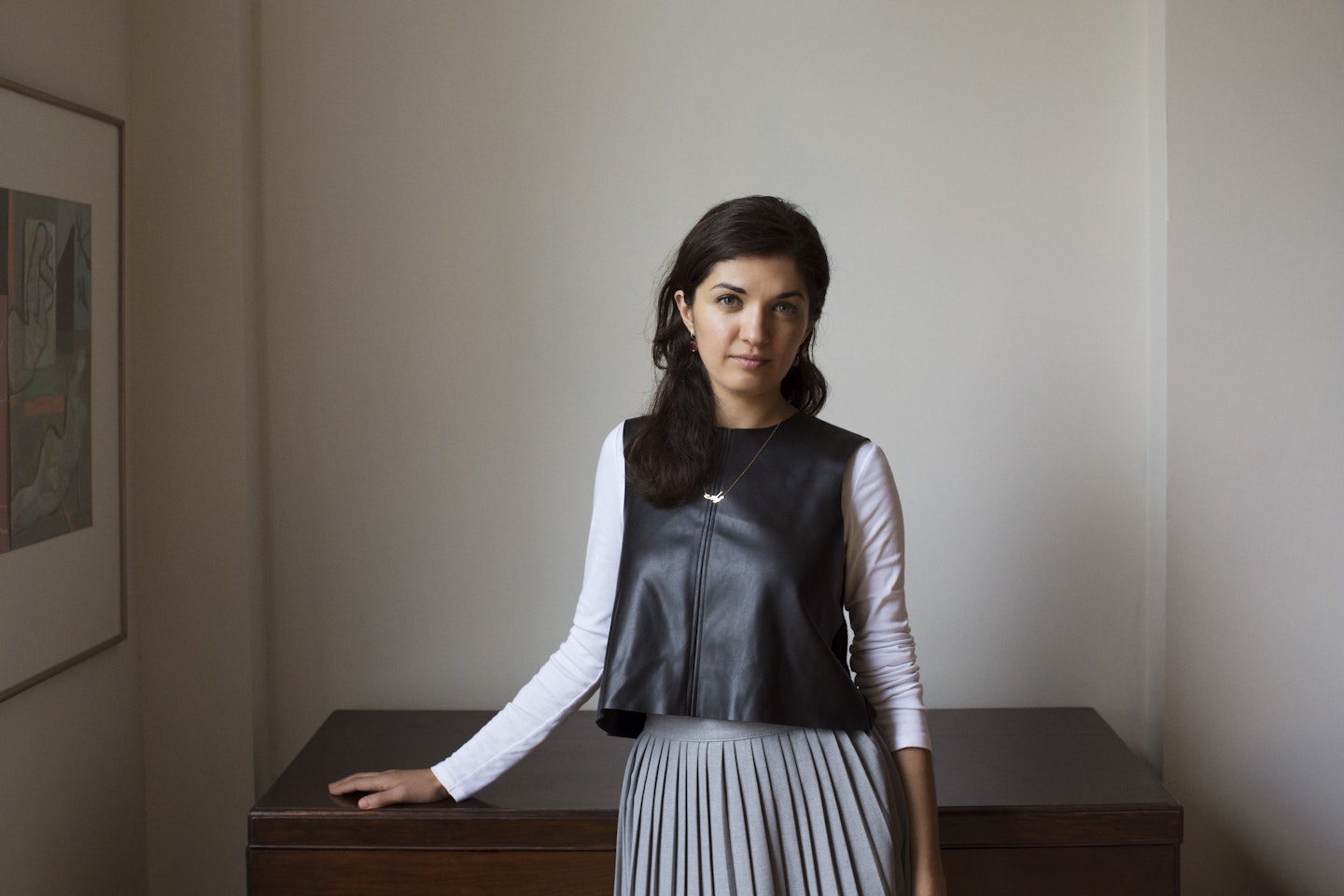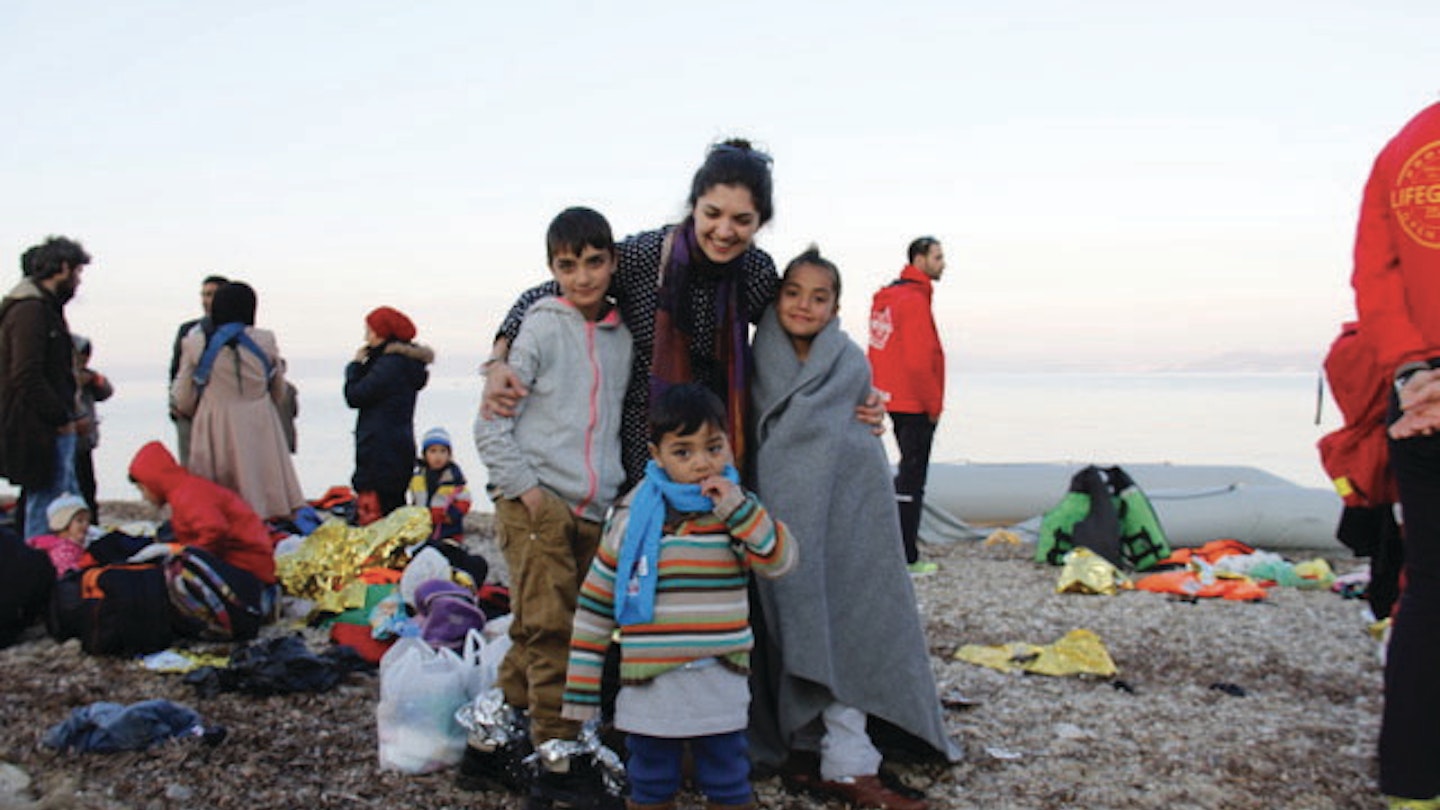We’ve all seen the news footage of desperate refugees climbing off dinghies, and seen pictures of children who didn’t survive washed up on Greek beaches. But nothing prepares you for witnessing those scenes first hand – for changing the soaking clothes of a freezing woman who is seven months pregnant and praying that her unborn baby is alive.
Two years ago, I went to Greece with two other volunteers to try to help the thousands of refugees who were washing up on the island of Lesbos every day.
They came – families, toddlers, pregnant women – at all times of the day and night, screaming, freezing and desperate to escape the boats that were sinking beneath them. It was February. They scrambled on to the beach and it was our job to greet them, comfort them, change them into dry clothes, give them water and explain what lay ahead. While medics dealt with the sick, we referred to our work as ‘psychological first aid’.
I recognised that look of panic in their eyes because I was a child refugee. Like them, my family and I were forced to leave behind everything we knew and loved to save our lives, when Afghanistan’s civil war forced us to flee our country in 1992, when I was 11. We had been just an ordinary family; my dad a civil servant and Mum a teacher. We lived in a big house in Kabul – me, my four siblings, parents, grandmother, an aunt and uncle.
As a little girl, I loved to garden at my grandmother’s feet. We had a beautiful garden full of roses and vegetables, and the smell of basil hung in the air. The war meant we had no electricity so we’d play for hours outside. But conflict was raging. Our school was bombed and our street became home to snipers. Rockets and grenades fell all the time and my youngest brother cried constantly. As the fighting intensified, we barely went out. Food and water was in short supply but Dad was reluctant to leave. He’d say, ‘This is our home – where would we go?’ Even when there are bombs falling on your street, home still feels like the safest place.

Then my parents got word that things were about to get even worse. Thinking we’d be gone for just a few months, we left with only a box of basic provisions. Everything that meant something to us was left behind. As we headed out of the city on a bus one morning, none of us knew we’d never return – or that we were embarking on a four-year journey.
Our escape took us through Central Asia and Eastern Europe. We’d try to set up home – sometimes for a few weeks, sometimes for more than a year – then we’d carry on, travelling by train or bus, hoping that the next place would work out. I don’t remember much about it, except that it was incredibly stressful for my parents. As the eldest, I’d look after my brothers and sister while my parents tried to find a place for us to stay or Dad looked for work. My overriding memory is of waiting – there was a lot of boredom, of not knowing where we’d end up next. Our survival depended on people’s kindness and that meant we encountered every shade of humanity. In Kiev we lived in a dorm-style hostel for students and a lady working there realised that we were curious children, eager to learn. She gave us pens and paper and taught us to speak and read Russian. But we encountered abuse and racism, too. Landlords wouldn’t let us rent their apartments, and people often looked straight through us.
When your life is turned upside down, all you can think about is making it to your destination. You cling to this idea of a safe place, of being able to finally stop, and pick up the threads of who you were. You dream of people being kind instead of hostile, or living instead of surviving.
When we finally made it to London in March 1996 and my parents applied for asylum, I was hit with a very different reality. At 15 and unable to speak a word of English, I was thrown into a tough London comprehensive. It was very hard. Then my brother, aged 13, was stabbed in a random, racist attack on the way home from school. He was OK but the incident really shook us. In the place where we were finally meant to be safe, we were not.
That’s the difficult adjustment that I now see when I’m working with refugees. In northern Greece, there are more than 60,000 refugees living in camps and shelters, waiting for their asylum applications to be processed. They are trapped. One thing I know for sure, not one of these people left home willingly or believed they’d end up living in a tent in a former chicken factory.
After my experience on the beaches of Lesbos, I knew these traumatised people were going to need long-term support to survive the coming months, so I co-founded the Refugee Trauma Initiative (RTI) in 2016.
At RTI, we have four trained counsellors running sessions for people to talk to us about what they’ve been through and what they’re facing. We want them to recognise their own resilience. Typically, when someone makes it to the camp they’re so exhausted, they think, ‘I can’t do this any more. I can’t go on.’ Our job is to help them feel hopeful for the future – because they have to be. As a trainee counsellor myself, I often tell the teenagers my background. So many of them say that they feel like their life is over, so I tell them I started from scratch at 15, took my GCSEs two years later, went to university… I want them to see that there is a future for them.
We also provide sessions for children and families. We’re seeing a whole generation of children growing up with the effects of chronic, toxic stress – which means speech delay, bed-wetting, nightmares, attachment issues… We advise parents on how to cope with all of that, as well as creating a safe space where children can play and thrive. Many of the parents are in shock, they are grieving for the secure childhood that their children are missing out on.
We’re now in a position where we are ready to expand our work. Experts agree that refugee numbers are only going to go up due to war, instability and climate change. People are moving in unprecedented numbers all over the world and they need support to be able to keep their families together, rebuild their lives, look after their children and take on the next challenge. These people’s lives will continue to be hard.
My family was very lucky and we got the safety we needed. My parents are bewildered – they risked everything so that I could stay away from these sorts of problems and yet I keep running back to them. But I can’t look away. When you recognise that sadness and confusion in a child’s eyes because you’ve seen it in your own siblings, you have to do something.
Zarlasht and her team have helped more than 2,000 vulnerable people in northern Greece. Please donate whatever you can so they can continue their vital work at gofundme.com/rtiuk
READ MORE: The Truth About How Much Childcare Costs Around The World
READ MORE: Scotland Becomes The First Country To Offer Free Sanitary Products To Low-Income Women
